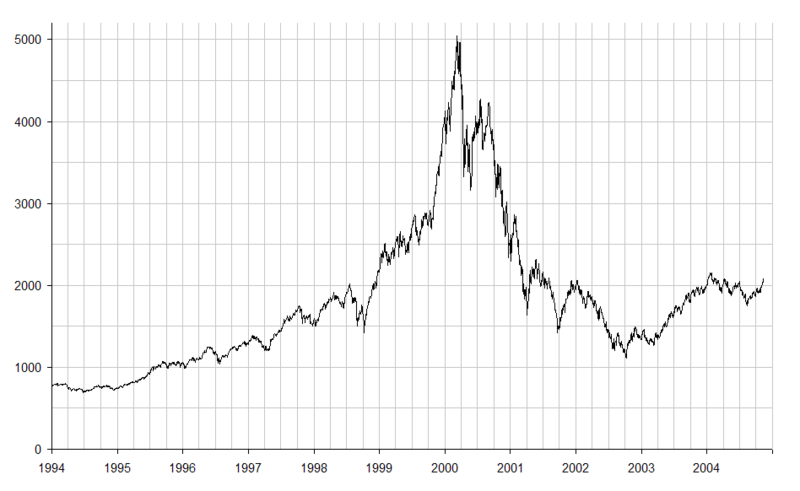Mathieu Martin |
When To Sell: 8 Reasons To Put A Stock Up For Sale

Do you ever have difficulty knowing when to sell a stock? If you’re like most investors, you probably find it harder to sell than to buy.
Resources abound on strategies and criteria for buying stocks, but what about selling? Are there strategies at all?
”Our favorite holding period is forever.”
– Warren Buffett
So Buffett never sells? He also states that if you are not comfortable owning a business for ten years, you shouldn’t own it for ten minutes. Essentially, what Buffett wants us to understand is that by buying high-quality companies only, an investor can patiently wait forever as they execute successfully and their value compounds.
Although I don’t intend to question Mr. Buffett’s teachings, I think it is necessary to make a distinction when it comes to microcaps. Because microcaps are typically start-up companies or they operate in very specific market niches, their situation can change quickly, and you need to monitor them properly.
” Small microcaps evolve in different ways, and a lot of the ways aren’t good ways. You can’t buy and forget, you need to buy and verify, and the smaller the company the more often you verify.”
– Ian Cassel, Buy And Verify
Several situations can arise where it is necessary to consider selling a stock. Here are the eight most common I’ve encountered over the years:
1. Sell To Invest In A Better Opportunity
Finding a better opportunity is my favorite reason to sell. When I look at my portfolio, I not only consider the quality of the companies that are part of it, but I also compare them with my watchlist (those I don’t own yet). Each stock in my portfolio competes with those on my watchlist and needs to deserve its place.
Sometimes I find new opportunities that are just too attractive not to include them in my portfolio. If I do not have enough cash available, I then have to sell the least attractive stock I own to make room for the newcomer.
2. Sell If Financial Results Don’t Meet Your Expectations
When investing in a company, it is generally a good idea to estimate its intrinsic value first (at least if you are a proponent of fundamental analysis). This process implies estimating the future cash flows the company will be able to generate through its operations.
If a company delivers results that are below your expectations quarter after quarter, you must question your investment thesis. Are the prospects still as attractive as you originally thought they were? Is the risk/reward ratio still favorable?
3. Sell If The Balance Sheet Is Too Risky
Sometimes you may invest in companies that are not profitable yet, or that were, but are currently experiencing difficulties. A company that doesn’t generate profits must have a solid balance sheet with enough cash to keep operating. It must be able to pay its employees and suppliers, but also to pay off its debt.
A company that doesn’t have enough cash to continue to operate for at least the next twelve months presents significant risks. It may have to raise additional capital through the issuance of new shares or debt. In both cases, it is hard to predict at what terms it will be able to raise these funds. In my experience, those who benefit most from these situations are the investors who come to the rescue of the distressed company, not the existing shareholders.
If the balance sheet presents a significant risk of refinancing, it can be wiser to sell and wait for the problem to be solved. The two main advantages are that you can judge whether you like the solution, and you can be part of the solution by reinvesting directly in the financing if you like the terms.
4. Sell If The Nature Of The Company Changes
Sometimes you invest in a company because you see potential in the business model, a specific product or service, the CEO with a track record of success, or a host of other reasons.
And sometimes, things change drastically after that. The business model turns out to be a failure, and the company pivots to a new strategy. They sell the division in which you saw great promises. The successful CEO accepts a better job offer elsewhere. The company makes a major acquisition in a sector you don’t know well.
If the business changes and no longer fits your criteria, it might be time to move on.

5. Sell If Management Is Dishonest
Life is too short to invest with management teams you can’t trust. There are thousands of public companies in North America. Do not waste your time with the bad apples.
Each person has his level of tolerance and his definition of dishonesty. I don’t invest in a management team that:
- Makes false promises and does not deliver what it said
- Uses creative accounting to manipulate the financial statements
- Has a history of theft or fraud
- Attempts to misrepresent past qualifications and accomplishments
- Discloses material non-public information to certain investors
6. Sell If Management Does Not Act In Your Best Interests
One of my important criteria when buying a stock is that the management team’s interests are aligned with mine. That is, they have a significant equity stake in the company, and their salary is reasonable. When the opposite happens, it may be a reason to sell.
Therefore, I am not fond of extremely high salaries (compared to similar companies in the same sector), exaggerated bonuses, and the aggressive use of stock options, among other things. I need to feel that the shareholders will ultimately benefit from the success of the company, not management alone through sky-high compensation.
7. Sell If The Stock Is Overvalued
Be very careful with this one. There are probably some good reasons why a stock appears overvalued: a track record of success, a solid long-term potential, strong competitive advantages, etc. Essentially, high-quality companies have the potential to appear very expensive from time to time when looking at traditional valuation metrics.
An expensive valuation is not necessarily a reason to sell in itself. That said, sometimes a stock will get overvalued because investors push their positive sentiment about it to the extreme. You have to be careful and be able to recognize when there are no more skeptics about a company. When a stock seems overvalued, and everyone agrees it will keep going up, be careful.
For proponents of technical analysis, a stock chart that climbs in a parabolic way is usually a sign that the positive sentiment has become extreme. Again, be careful because the subsequent fall is often brutal.

NASDAQ during the dot-com bubble
8. Sell If You Don’t Know How To Value The Company Properly
Sometimes, you may end up owning a stock and having no idea how to value it. Maybe you bought it because you thought you understood the business, but you realize it was a mistake. Maybe you just followed a friend’s advice. Maybe you wanted to take advantage of an uptrend in a sector you are unfamiliar with (cryptocurrencies/cannabis/natural resources anyone?).
Whatever the reason, it is important to know what you own and to understand it properly at all times. If you don’t, how will you make good buying or selling decisions about the stock in the future? If you have no idea when or why to sell, the best time might be now.
Would You Be A Buyer Today?
This question can help you to put things in perspective. Assuming you were not already a shareholder of the company, would you be buying it today, at the current price? If not, ask yourself why the stock is in your portfolio then.
In the end, the reasons for selling are often reasons not to buy in the first place. If you have a solid investment process with clearly defined criteria when you buy, these criteria should also guide you through the selling process. Monitor the red flags continuously for the companies you own.
If you ever have a chance to find an outstanding company, in good financial health, with a solid long-term potential, a product or service that is easy to understand, an honest and competent management team, and its valuation never gets too crazy, then you might have the opportunity to make a Warren Buffett of yourself and hold it forever. Otherwise, I recommend you keep your eyes open for reasons to sell!
___
Sign up to our free monthly newsletter to make sure you don’t miss any articles posted on the blog! You will receive all our new posts in a single email at the end of each month. Simply click on the “Subscribe” button at the bottom of the page and enter your email address.

